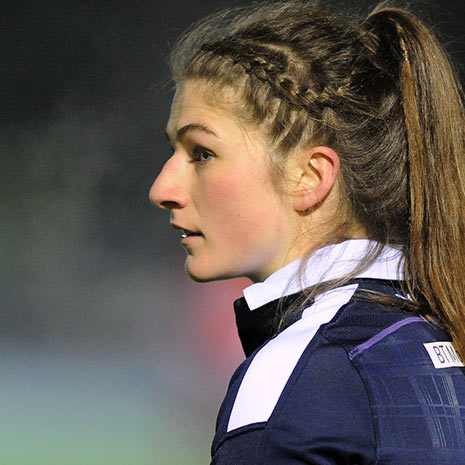Summer of Sevens
With the return of Summer, comes the return of the Rugby Sevens. This year we will also be blessed with the return of rugby in the 2016 Olympics in Rio de Janeiro, Brazil. The fact that rugby has not featured in the Olympics since 1924 marks this as a very special occasion for the sport in general!
Rugby Sevens, also known as seven-a-side, is a fast paced hard hitting game and takes a lot out the body. You must be physically fit to even take part in one game let alone multiple each day spread over numerous days. In order to best perform in these competitions, it is of the utmost importance that you fuel your body correctly in order for it to recover leaving you ready to hit it again as soon as possible.
This article will discuss the optimal nutritional strategies that you can use to ensure you are at your best when playing.
In order to begin we must first look at the breakdown of a Rugby Sevens tournament:
- Games are much shorter (14 minutes) but are much faster paced.
- Only 7 players spread over the whole pitch meaning much more room to run.
- Only 7 minute halves.
- Very short breaks between halves (2 minutes).
- Multiple games per day.
- Short recovery periods between games.
With all this in mind, we can start to investigate strategies on how to best perform and recover for this high intensity sport.
Before
First and foremost – performance begins before the first whistle is even blown. If your body is not fuelled and hydrated properly in advance you are off to a bad start from the get go so make sure you prepare in advance.
The day before (even two days before) you should ensure that your body has had a steady supply of carbohydrate rich foods to ensure glycogen (carbohydrates are stored in muscle as glycogen) levels are fully topped up. Additionally, ensuring adequate fluid intake is essential to keeping the body hydrated throughout any activity so being hydrated before is always optimal. An intake of around 3-4g or carbohydrate per kg of bodyweight would be advisable with numbers possibly reaching 5-6g/kg of bodyweight for those that can tolerate it. It is clear that individuals with more muscle mass will store more glycogen than others, so ensure your carbohydrate intake matches your individual requirements. An average male athlete around 90kg may consume 360g-450g Carbohydrate the day prior to competition.

In regards to fluid consumption, it is best to just drink fluids throughout the course of the day with your meals to ensure that your body retains the fluid because increasing fluid intake unnecessarily will only lead to increased bathroom trips to get rid of it all.
Sleep is very important when it comes to ensuring adequate recovery and will lead you into the competition feeling rested and ready to go so ensure you don’t get to bed too late and get at least 8 hours rest.
This all sounds really simple, right? That’s because it is. Eat a carbohydrate rich diet, consume adequate fluids and get to bed early and it will set you up nicely for the competition.
During
Even if you have made sure to prepare properly for game day, the work doesn’t stop there. The next step is taking care of your body during the competition itself in order to be able to play multiple games in a short amount of time. The necessity to fuel our body with a rich carbohydrate intake to ensure that we have energy to burn throughout the day doesn’t change, it just becomes a little more important on game day. Because we are burning fuel at a rapid rate, we need to ensure that the body has available fuel to use instead of tapping into our muscles and other reserves leaving us feeling tired and lethargic. Not only this, but there’s only a small time period between games to fuel up and hit it hard again.
If this all sounds simple that’s because it is. Eat a carbohydrate rich diet, consume adequate fluids and get to bed early.
It’s important to remember that, because each game is only 14 minutes long, your energy levels will not necessarily deplete as much after one game, so you do not need to eat a full carb-rich meal before each game. Your body doesn’t need it and it will only leave you feeling bloated and very possibly sick if your games are close together.
Snacks are the best way to make sure that you have readily available fuel which is easy to eat and digest. Simple things like cereal bars, jelly sweets, and rice cakes with jam are great examples of snacks that will assist in keeping your energy levels up. These foods require no cooking and can be eaten in 5 minutes, exactly what you need for a quick recovery. Additionally, carbohydrate drinks are a great way of getting quick fuel into the body that does not require the same breakdown as food does so have a few carb based drinks nearby to sip on during and between games.
In regards to amounts, you should still aim for the aforementioned carbohydrate amount intake of around 4-5g per kg of bodyweight but you should spread this throughout the day with breakfast containing a significant portion of it – perhaps 60-80g carbs.
Depending on what time the tournament starts you may have time to get two meals in which would be preferable.
Stimulants
You’ll see a lot of people using funky energy drinks throughout the day which include caffeine and a whole host of other ingredients. I believe caffeine is absolutely fine but some people get a big crash a few hours after taking it which is not what you want during an all-day competition. There are more suitable ways to take caffeine without the crash such as transdermal caffeine where you simply apply a few sprays on your hands to get the same effect with no crash. Caffeine does tend to affect people in different ways, so I wouldn’t suggest testing it out the day of the games.
After
After the last game of the day, taking the time to look at how your body can best recover is important, especially if you are required to do it all over again the next day. Establishing a recovery strategy and sticking to it will protect your body from injury and ensure you are back to fighting form in time for the next game.
- Eat – We’ve already discussed food previously in regards to preparing for a game, and it is just as important to eat following a game as it is beforehand. Following that last match is when we should look to start repairing the body. A quick and effective way to start the healing process would be to consume a whey protein shake with carbohydrates. They are readily available in most shops and if you’re not into the whole supplement thing, then science has shown that good old chocolate milk can do just as good a job at repairing the body. The milk has your protein whilst the added sugar from the chocolate milk will provide the much needed carbohydrates.
For the rest of the evening, eat good quality whole foods and enough of them so you get enough protein to heal your muscles and carbohydrates to store for fuel.
- Sleep – Possibly one of the most underrated components of recovery. Sleep is absolutely critical when it comes to recovering from exercise, especially an intense activity like rugby. Even if you feel like celebrating after a successful first day of the tournament, get an early night to be at your best the next day. You never know, the extra benefit from your enhanced recovery may be the difference between an important win or lose the next day.
Other recovery strategies that you can use to enhance your recovery would be:
- Bath: A simple hot bath will help relax muscles and promote blood flow aiding recovery. Furthermore, adding epsom salts or magnesium salts to the bath will help relax the muscles even more.
- ZMA: A well-known supplement containing Zinc, Magnesium and Aspartate has been shown to enhance sleep quality allowing you to get a deeper more restful sleep.
- Massage: Rugby, of course, is a contact sport which means you’ll get hit, hard. A quick sports massage will help ease pain and relax any muscles that may have been damaged or tense during the game.
Example Game Day Diet
Below you will find an example of a carbohydrate rich diet that could be used in a tournament style situation to promote recovery and fuel performance.
Summary

This is a simple and effective guide of strategies for promoting optimal performance and ensuring effective recovery for Rugby Sevens. It doesn’t matter what level you play at, you should look to optimise these strategies to make sure you play at your absolute best. I would encourage you to share this article with your team as well to make sure everyone is working as a team to be the best they can be. Even though the games are shorter, they rely on teamwork just as much as a regular game so establishing team preparation and recovery plans in advance will ensure your team will be as successful as they can be.
About the author
Dean Robertson MSc BSc (Hons) is owner of Elysium Personal Training, an Edinburgh based personal training company that works with a wide range of clientele from elite level athletes to individuals simply looking to improve their health and fitness. He is currently working to bring a new concept of gym to the fitness industry which will be located in Edinburgh. You can see the project details at www.elysiumgym.co.uk
He can be contacted via social media on Facebook, Twitter or Instagram @Elysium Personal Training.
You can also contact him via email at – elysiumpt@outlook.com




Comments